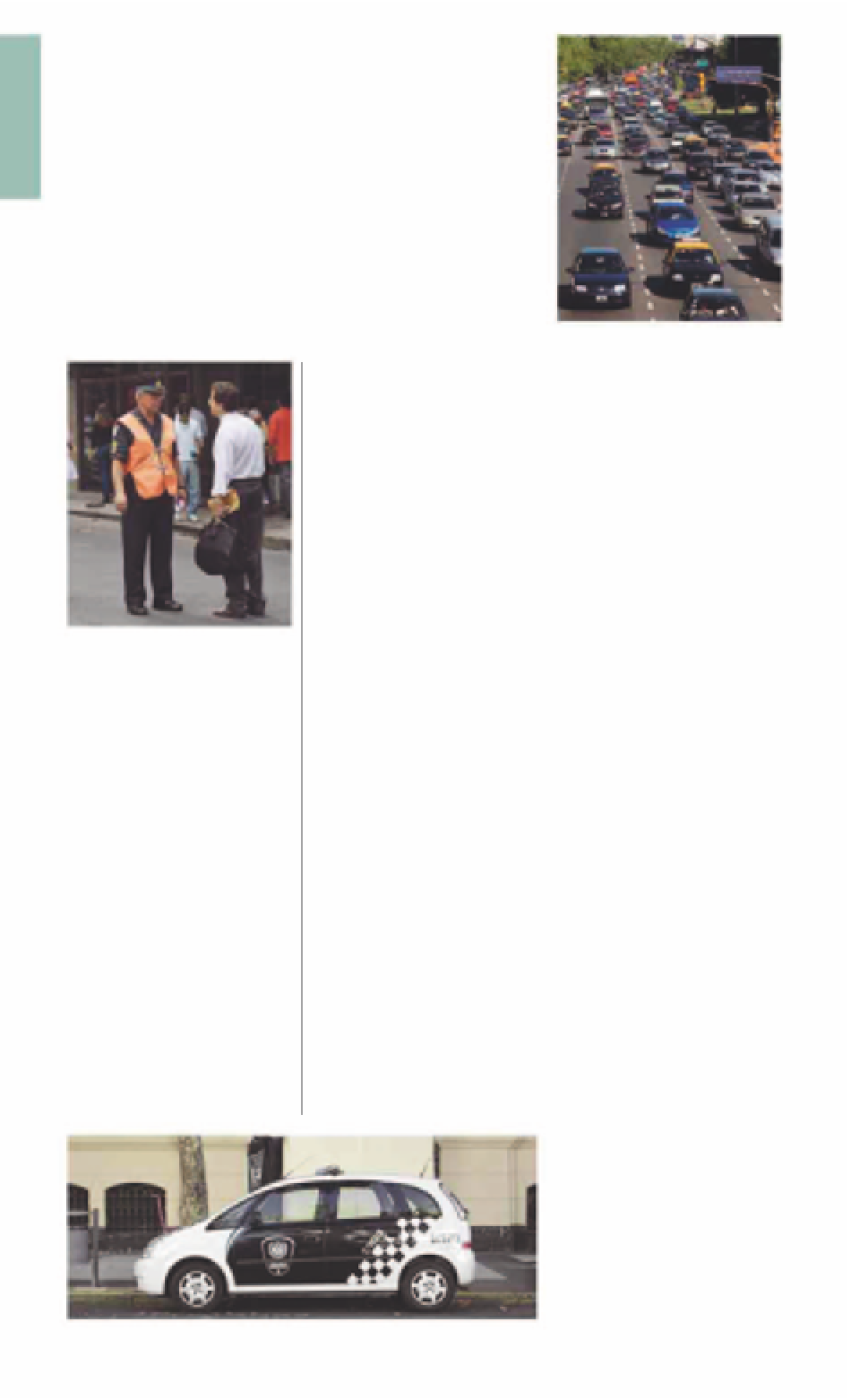Travel Reference
In-Depth Information
Personal Security and Health
Argentina is relatively safe, though in popular tourist cities
such as Mendoza, Córdoba, Buenos Aires, and other areas,
petty theft and assaults are increasing. Take particular care
in the La Boca area of Buenos Aires and keep valuables locked
away in the hotel safe. It is advisable to bring prescribed
drugs, as well as a first aid kit and water purification tablets
when traveling anywhere off the beaten track. If you have
a persistent medical condition it is a good idea to have a
doctor's letter translated into Spanish, although most
Argentinian doctors will have at least a basic grasp of English.
Traic jam along a city road, a common
sight in Argentina
Comisaría del Turista
, which
has English-speaking staff.
Never hand over important
documents, such as a passport,
to a police officer without a
witness being present and a
receipt provided.
at all times and look carefully
while crossing a busy junction.
Be prepared for uneven road
surfaces and pavements, and
flying grit while driving on
gravel roads.
Noisy street marches and
protests are part of the daily
routine in Buenos Aires,
although their effect is mainly
felt by commuters traveling
from the province to the city.
It is safer to always allow for
a bit of spare time to reach
a destination.
Lost and Stolen Property
There is little point in reporting
lost or stolen property to the
police unless there is a need to
file a
levantar un acta
(official
report) for insurance purposes.
Visitors will need to do this at
the nearest
comisaría
(police
station), usually within 24 hours
of the robbery. Lost passports
and credit cards should be
reported as soon as possible
to the embassy
(see p317)
and
to the card issuer respectively.
Petty theft is not a major
problem in Argentinian cities
but visitors must always be on
guard, particularly in unsafe
neighborhoods and when using
ATMs outside banking hours.
Hotel thefts are rare but it is
wise to leave valuables in a safe.
A Federal policeman in his uniform,
Buenos Aires
Police
The Federal Police has
jurisdiction across Argentina
but in reality is active mainly
in the capital, alongside the
Metropolitan Police Force. Most
routine police work is under-
taken by the provincial police
forces. Visitors may find that
local police are not always
helpful and the problems
afflicting police forces in most
developing nations, such as
corruption and low salaries, are
evident here.
Those who find themselves a
victim of, or witness to, a serious
crime must report to their
embassy and the relevant law
enforcement authority. In
Buenos Aires, this is the
Natural Disasters
Argentina has had very few
large-scale natural hazards
that present a threat to human
life. Heavy rainstorms result
in flooding due to a poor
drainage system in some parts
of the capital. Earthquakes are
a theoretical risk in provinces
such as Mendoza and San
Juan, which border the
Andean range. The last tremor
of serious note occurred in
Santiago del Estero in 2011.
In the unlikely event of an
earthquake, it is advisable to
move away from electricity
poles and high structures.
Street Hazards
Not all Argentinian drivers
follow road regulations and as a
pedestrian it is best to be alert
In an Emergency
It is best to call an ambulance in
case of an emergency and to go
to a state hospital
emergencia
(emergency room) if not
covered by medical insurance.
Visitors are advised to carry
along their medical papers in
case the doctor wants to take
a look at the prescription.
A black and white police car in Buenos Aires

































